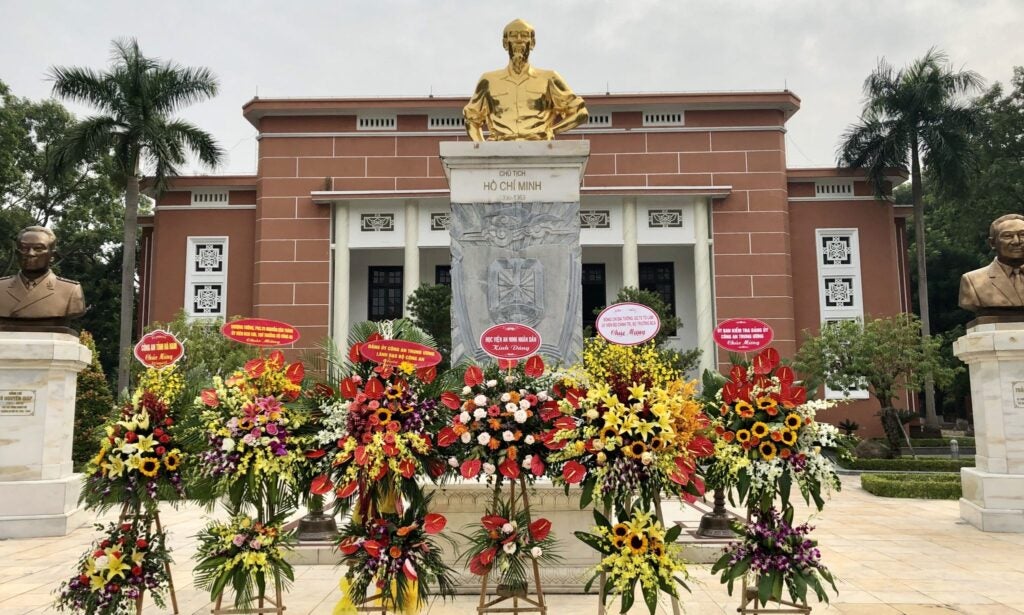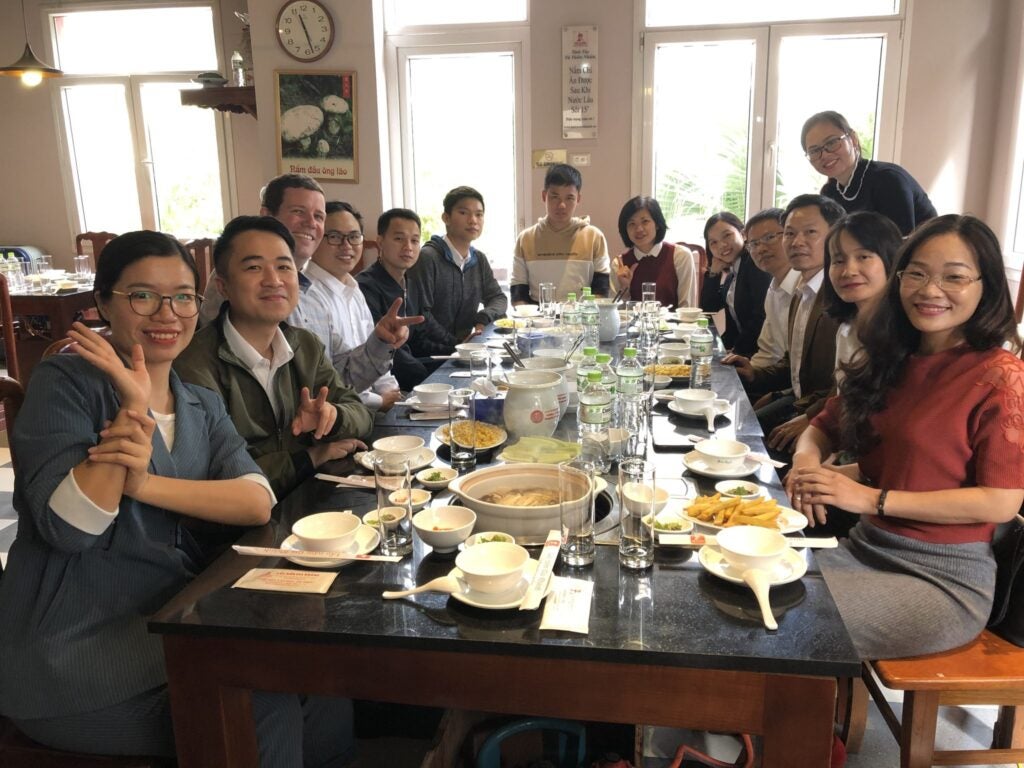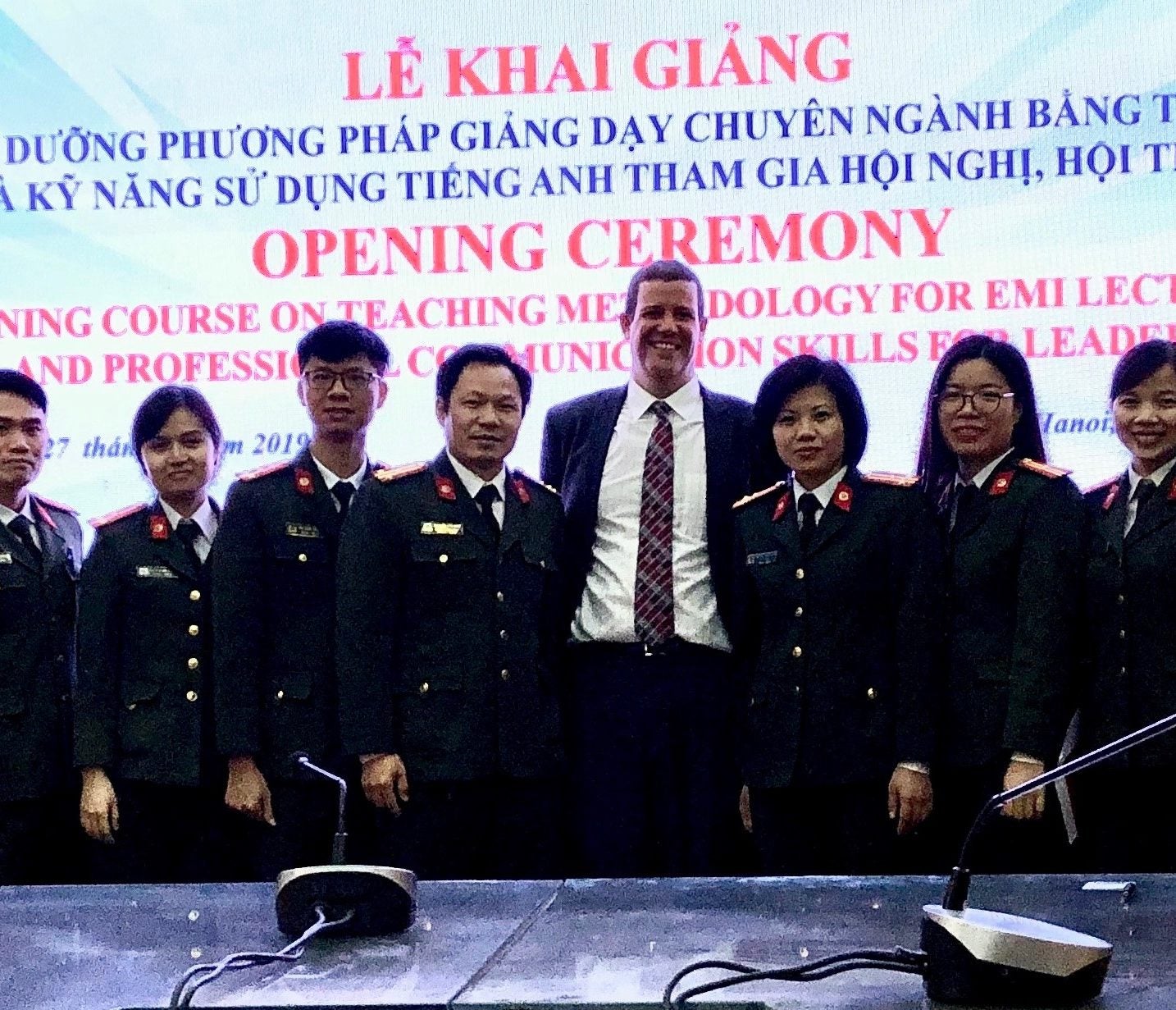In late 2019, Colin Vandergraaf implemented a five-week English Language Specialist project at the People’s Security Academy (PSA), one of the Ministry of Security’s two flagship training academies in Hanoi, Vietnam. On a previous project in 2018, Vandergraaf had developed materials for English for Specific Purposes (ESP) for Vietnamese customs officers, and he was thrilled to return to Hanoi to support the PSA’s lecturers in transitioning to teaching law-enforcement courses in English. He designed and conducted an English Medium Instruction (EMI) program, helping with the implementation of a major change in language policy at the PSA.

At the heart of an EMI project
Vandergraaf, who has extensive expertise in ESP, recognized that EMI “is a global trend that is transforming education in many places.” He was delighted by the opportunity to see an EMI project “in action.” The EMI program was made possible through the cooperation of the Ministry of Public Security (MPS), the PSA, the U.S. Embassy’s Regional English Language Office, and the Bureau of International Narcotics and Law Enforcement Affairs. For Vandergraaf, it was truly a chance to learn about a unique higher education institution transitioning to EMI in real-time.
“It is amazing the rate at which institutions in Vietnam and the PSA specifically are prioritizing English. I was told that 10-15 years ago there were only a few people at the PSA who could speak English, and yet today they are actively implementing an EMI program for Vietnamese lecturers to teach Vietnamese students in English,” shared Vandergraaf.
He conducted a needs assessment and subsequently designed an entire EMI training program for the PSA lecturers, who teach national security and law enforcement courses to pre- and in-service officers and state security personnel at the Ministry of Public Security.

Helping lecturers of highly specific law enforcement backgrounds with practical English teaching tools
Vandergraaf enjoyed working with lecturers from diverse academic backgrounds, including international law, psychology, cyber security, criminology, and state security, who were not only transitioning to teaching in English but also strongly encouraged to publish research in international journals in English. Inspired by their creativity and eagerness to meet these demanding language expectations, Vandergraaf strived to provide practical strategies for teachers “who were dealing with concrete language challenges in the classroom.” He introduced hands-on ELT methodologies, focusing his workshops on student needs, lecture organization, and classroom dynamics. The PSA lecturers put learning in practice in each of their own specialized fields during a concluding micro-teaching activity session, and learned about each other’s areas of expertise in the process. In addition, Vandergraaf provided a workshop series on academic writing for publication and professional communication skills. Reflecting on this project training, he states that “looking at methods and practices commonly used in ELT classrooms and how they may apply to lecturers teaching content in different disciplines through English helped me see the value of what we do as English teachers more objectively.”

Developing an EMI manual
One of Vandergraaf’s hopes was that this project “would provide lecturers at the PSA with a solid starting point as they transitioned to teaching more courses in English.” To this end, he produced an EMI manual. The 60-page resource highlights the entire training’s content and is tailored to the PSA’s context. From needs analysis to course design and resource development, the manual aims to assist all PSA lecturers tasked with transitioning teaching courses from Vietnamese to English. With this strong foundation, Vandergraaf is convinced that the PSA students and lecturers will continue to improve their English proficiency and collaborate further with other international academic institutions through professional exchange.

Colin Vandergraaf has over 10 years of English language teaching experience and expertise in English for Specific Purposes. He enjoys teaching English courses for working professionals and has developed programs for government, military, hospitality, and maritime organizations. Vandergraaf recently completed a long-term project with the RELO Office in Belgrade, Serbia, and was an English Language Fellow in Hungary (2016-2018), Laos (2015), and Senegal (2012). Vandergraaf obtained his master’s in linguistics from the University of California at Davis and his bachelor’s in anthropology and German from Southeast Missouri State University.

